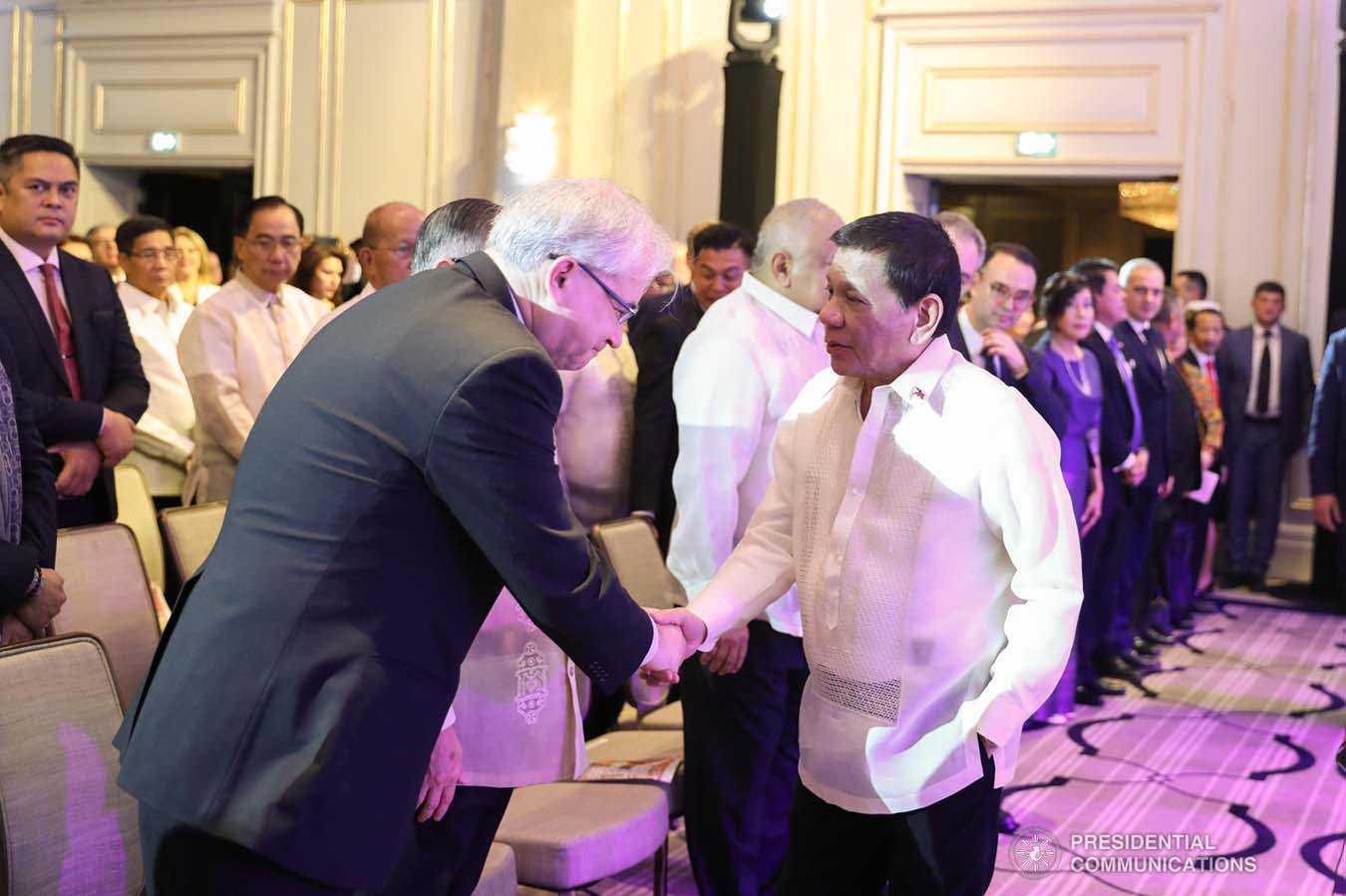Headline
OFWs ‘most welcome’ to Russia but robust legal framework needed

FILE: President Rodrigo Roa Duterte greets Russian Ambassador to the Philippines Igor Khovaev during the Philippine Cultural Gala Performance at the Four Seasons Hotel in Moscow, Russian Federation on October 4, 2019. ALFRED FRIAS/PRESIDENTIAL PHOTO
MANILA— While Russian President Vladimir Putin has assured President Rodrigo Duterte that workers from the Philippines are “most welcome” to Russia, a “robust” legal framework must be crafted first to protect the interest of both employers and employees, Ambassador Igor Khovaev said Thursday.
“President Putin told President Duterte (that) Filipinos are most welcome, we need additional labor resources and in this respect, Filipinos are most welcome in Russia,” he said in a CNN Philippines interview recalling a conversation between the two leaders.
“But before that, we need to solve one problem, we need to build a robust legal basis for our cooperation in this quite sensitive field,” he added.
Khovaev said the framework should identify measures in protecting the rights and legitimate interests of both the employer and the foreign employee.
“That’s why we proposed that a relevant agreement on government level should be signed. That would mean all competent agencies will be involved in this deal and all of them would be responsible (for the) implementation of their obligations,” he noted.
In terms of demand, Russia can accommodate Filipino babysitters, nannies, and caregivers, as well as labor resources in other sectors such as its oil industry, said the envoy.
Khovaev, who himself employs a Filipino caregiver to take care of his mother in Manila, praised Filipinos as outstanding workers.
At his residence, he said his Filipino employee seemed like an “extension” of his family. “I believe the Philippine caregivers are the best.”
The Philippine Embassy in Russia has yet to receive news of Russian employers physically hurting their Filipino employees aside from one sexual assault case they are currently pursuing.
In the entire country, there are about 10,000 Filipino workers with 90 to 95 percent of that number working as nannies or household service workers.
However, Philippine Ambassador to Moscow Carlos Sorreta said only a few of these nationals have legal status because there are only about a hundred legal visas available for foreign nannies and household service workers.

